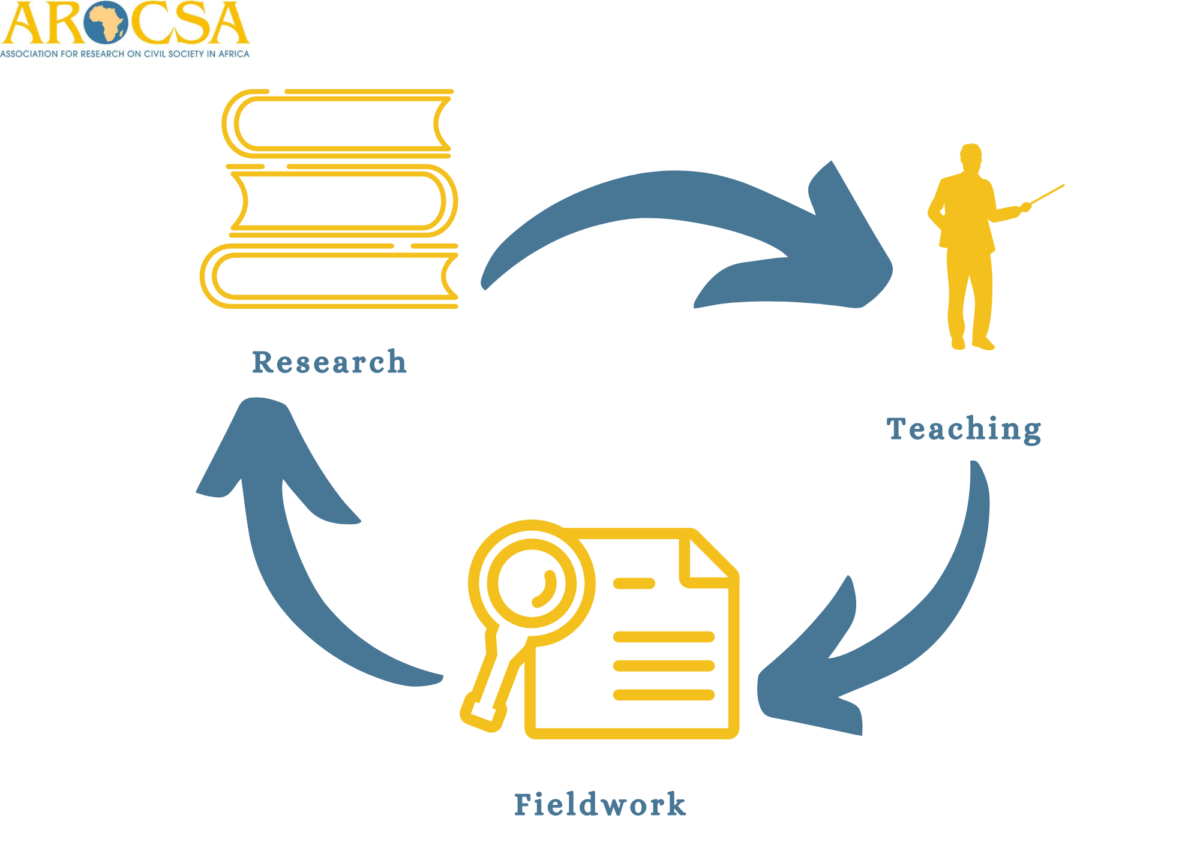Pracademics aren’t unique to civil society nor is the term a new concept, with the earliest citation dating back to the early 70s. Being a pracademic is simply being active both as a practitioner and an academic in your chosen field.
Whether you are an academic or practitioner in the third sector, the transition to pracademia isn’t – and shouldn’t be – an altogether unnatural transition. Although much of civil society’s work takes place in the field, a significant amount of it also exists and is developed in scholarly research, classrooms, policy creation and much more. As the research going on in schools, institutes, and various civil society, non-governmental, and non-profit organisations informs the trajectory of fieldwork, so does the fieldwork itself inform the result of research. Inevitably, one cannot exist without the other.
The Association for Research on Civil Society in Africa with the support of the Ford Foundation and through programs like the Leadership Transition Fellowship Program (LFTP), are invested in the creation of pracademics in Africa’s third sector. AROCSA Board Chair; Dr. Bhekinkosi Moyo describes our mandate as that “of producing a different cadre of leaders in civil society”. This is a task that we take seriously because of what it will mean for the development of civil society in Africa.
This equal representation of academia and practice being housed in an individual is – to us – a distinct marker of the ideal civil society leader for Africa. The balance creates the kind of leaders who are best equipped to capacitate African civil society by virtue of their position and the vast knowledge and experience they can imbibe in younger actors in the sector. They are able to give back in a way that truly touches upon every arm of the sector and will in turn push it forward.
The task of creating pracademics is a unique identifier of AROCSA, one that we intend to continue to pursue vigorously in the service of African development.

